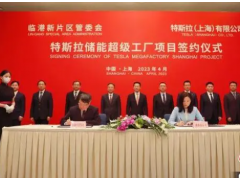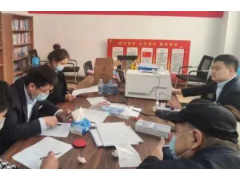The China-Japan-Korea Cooperation Secretariat hosted the China-Japan-Korea "Regional Comprehensive Economic Partnership Agreement" (RCEP) expert seminar and the "2023 China-Japan-Korea Economic Report" conference was held in Seoul, South Korea on the 22nd. Ou Boqian, Secretary-General of the China-Japan-Korea Cooperation Secretariat, delivered an opening speech. Chi Fulin, President of the China (Hainan) Reform and Development Research Institute, Aladdin Reno, Senior Economic Advisor of the ASEAN-East Asia Economic Research Institute, and President of the Korea Institute for Foreign Economic Policy Jin Xingzhong made a keynote speech. The meeting discussed the cooperation space among China, Japan and South Korea in the implementation of RCEP, the maximization of economic impact and regional economic integration.
Ou Boqian pointed out that RCEP and its cumulative rules of origin have brought many dividends to member states in terms of trade and supply chains, but there are also challenges such as geopolitics and structural contradictions in the industrial chain. She emphasized that China, Japan and South Korea should optimize industrial division of labor and strengthen investment in new economic fields such as digital economy, green economy, blue economy, cross-border e-commerce and health care industry.
In his keynote speech at the opening ceremony, Chi Fulin said that RCEP has provided important conditions for deepening China-Japan-Korea economic and trade cooperation, while China-Japan-Korea economic and trade cooperation is also facing severe challenges. To deepen economic and trade cooperation among China, Japan and South Korea under the framework of RCEP, the focus is on promoting market opening and effectively responding to the impact of "decoupling and broken chains" outside the region on regional supply chains. First, the complementarity of service trade among China, Japan and South Korea is constantly improving, and service trade has become the focus of promoting economic and trade cooperation between China, Japan and South Korea; second, the key to deepening service trade cooperation among China, Japan and South Korea under the framework of RCEP lies in market opening and avoiding "" Decoupling and breaking the chain” to promote greater market opening. Third, as regional powers, China, Japan, and South Korea play an important role as facilitators in the RCEP process, and have the conditions to take the lead in implementing the "fully cumulative" rules of origin. Dean Chi Fulin pointed out that to deepen China-Japan-Korea cooperation under the RCEP framework, it is necessary to grasp the general trend, eliminate interference, restart the China-Japan-Korea Free Trade Area negotiations, and work together to build the world's largest high-level free trade area.
Aladdin Reno pointed out in his keynote speech that the rules-based multilateral trading system has benefited the global economy. The implementation of RCEP aims to strengthen regional economic cooperation, promote the development of regional industrial chains and value chains, and promote regional integration, but it faces various challenges during the implementation process. ASEAN, China, Japan and South Korea should strengthen cooperation to strengthen regional trade connectivity and supply chain resilience. Deepening China-Japan-ROK cooperation under the RCEP framework plays an important role in promoting the high-quality implementation of RCEP. East Asia needs to achieve deeper integration in order to achieve the important goal of global economic integration.
In his keynote speech, Jin Xingzhong said that RCEP will help stabilize regional supply chains and promote regional economic integration. Respond to world uncertainties through free trade and multilateralism, and realize the well-being of the people in the region. RCEP is expected to provide an opportunity to restart the negotiations on the China-Japan-Korea Free Trade Agreement. The economies of the three countries with complementary economic structures will be able to develop more closely and play a catalytic role in a higher level of free trade.
The plenary session brought together 18 well-known experts from China, Japan, South Korea and ASEAN. In topic one, the participants shared their insights on the regional economic performance and integration of China, Japan and South Korea, and discussed the importance of strengthening economic cooperation among the three countries. Topic 2 focuses on the implementation of RCEP at the national and local levels. Participants identified common challenges in this area and discussed strategies for future growth through RCEP, suggesting that cooperation be explored at the local level to deepen economic ties among the three countries. Topic 3 discusses the significance of regional economic cooperation within the framework of RCEP. Participants recognized the potential for cooperation among the three countries under RCEP, emphasizing in particular the important role that people-to-people and policy exchanges can play.
This event was supported by the China (Hainan) Reform and Development Research Institute, the ASEAN-East Asia Economic Research Institute, and the Korea Foreign Economic Policy Research Institute.




